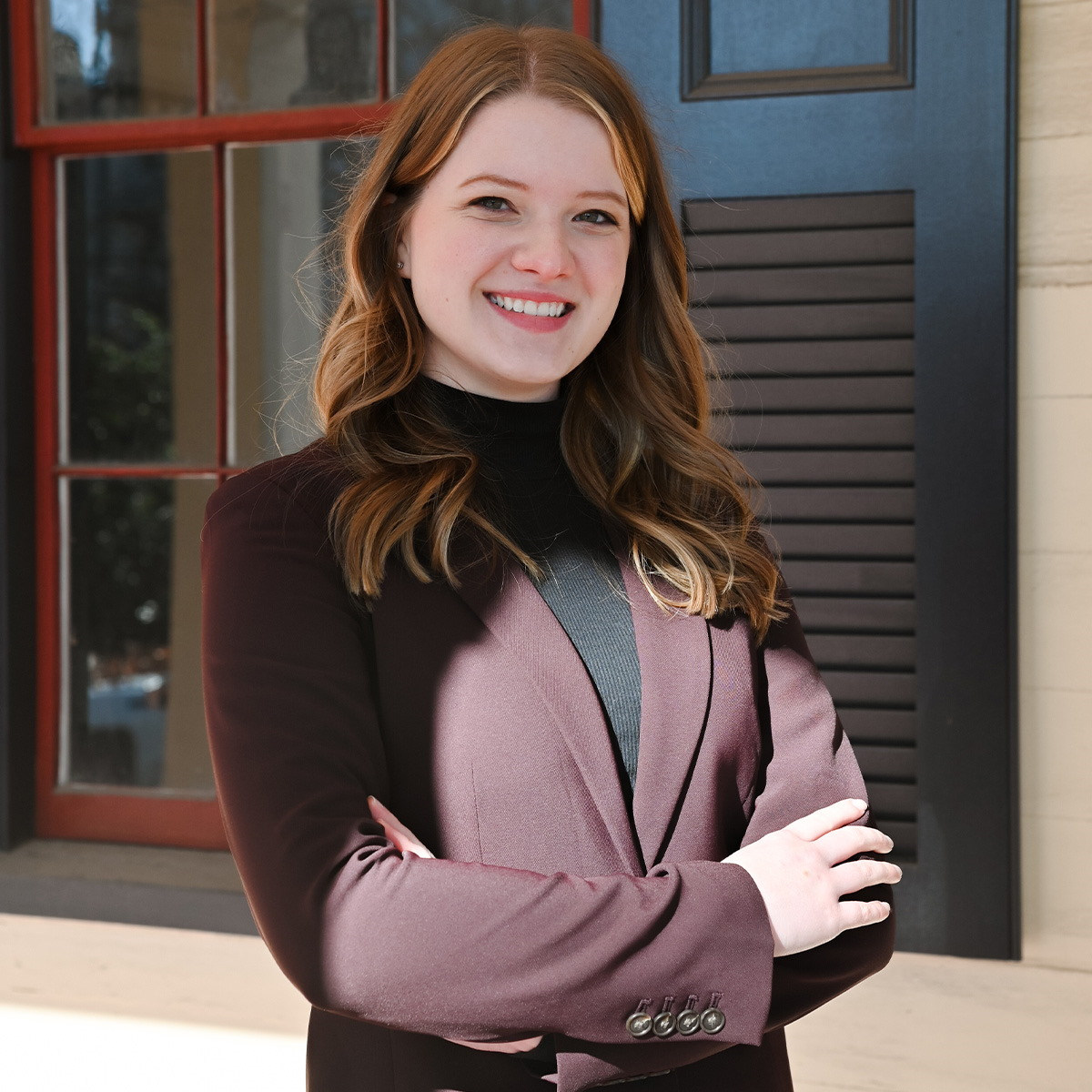
Study Public Health
The Bachelor of Arts (B.A.) curriculum is for students who want to apply the degree to social and behavioral sciences, while the Bachelor of Science (B.S.) is for students who are interested in a broad-based natural science.
January 24, 2024 | Erin Bluvas, bluvase@sc.edu
Meredith Rhodes was nearing the end of her freshman year when the public health major found her passion for addressing the opioid epidemic – a decades-long crisis that impacts 2.7 million Americans (and their families) and costs one trillion dollars each year. A native of Lugoff, South Carolina, Rhodes spent the summer as an intern with ALPHA Behavioral Health Center in nearby Camden.
That fall, she looked for opportunities to continue turning the tide of the opioid crisis. Having focused on opioid use prevention during her internship, Rhodes was interested in understanding treatment from a public health perspective.
She learned that health services policy and management associate professor Christina Andrews was leading two major National Institutes of Health-funded projects to study Medicaid programs for opioid and substance abuse treatment. The addiction expert welcomed students of all levels to contribute to this nationwide research.
“Through my work with Dr. Andrews and my coursework in medical ethics, I realized that public health policy is the best way to address the needs of priority populations on a wider scale,” Rhodes says. “While public health programs can certainly address priority populations, policy will achieve the same end on a larger scale.”
Over the next three years, Rhodes worked with Andrews and her team – even co-authoring a paper in the American Journal of Law and Medicine.
“I decided to work with Dr. Andrews because of her accomplishments in academia as well as her supportive nature and invested interest in my growth both on the research team and outside it,” she says. “She has influenced me through her drive and commitment to providing me with opportunities.”

Outside the Arnold School, Rhodes made her mark at USC in additional ways.
After three years as a member of the Carolina Band, she was elevated to Drum Major for her senior year. Rhodes also led USC’s chapter of Kappa Kappa Psi National Honorary Band Fraternity as president.
“The Carolina Band provided me with a home away from home, and it also connected me to students at the university with similar interests and goals as mine,” she says.
Rhodes also found a home at the South Carolina Honors College (No. 1 among public universities), which was a big factor in her decision to attend USC. She paired this experience with her coursework at the Arnold School, reveling in the academic rigor and small class sizes and finding a mentor in public health clinical professor Sara Corwin.
“Dr. Corwin has influenced me since the first time I was in her class during my sophomore year because of her high expectations and the way she drives her students to succeed,” Rhodes says. “The academic support I have received from her, Dr. Andrews and other professors and mentors at the university has been life-changing, and I can honestly say that without their support, I would not be on the path I am now.”
Where Rhodes is now is the final semester of her senior year. Not only has she maintained a 4.0 GPA, but she’s already been selected as a Carolina Law Research Scholar. Established in 2022, the program aims to recruit and retain the state’s top students by providing financial support through tuition waivers and stipends as well as research opportunities.
After completing her JD, Rhodes plans to pursue a career in health law, insurance and policy. She would like to work for a non-profit organization that uses public health policy and practices to improve the health and well-being of South Carolinians through changes to legislative policy.
“Don’t try to fit a particular mold of student and be open to trying new things while at South Carolina,” Rhodes advises current and prospective students. “There will always be something for you to do here, so focus on learning what you’re passionate about and determine your career choice from there. Get connected with professors early and learn about their career paths and how they got to where they are today – you never know what professor can change your career outlook.”